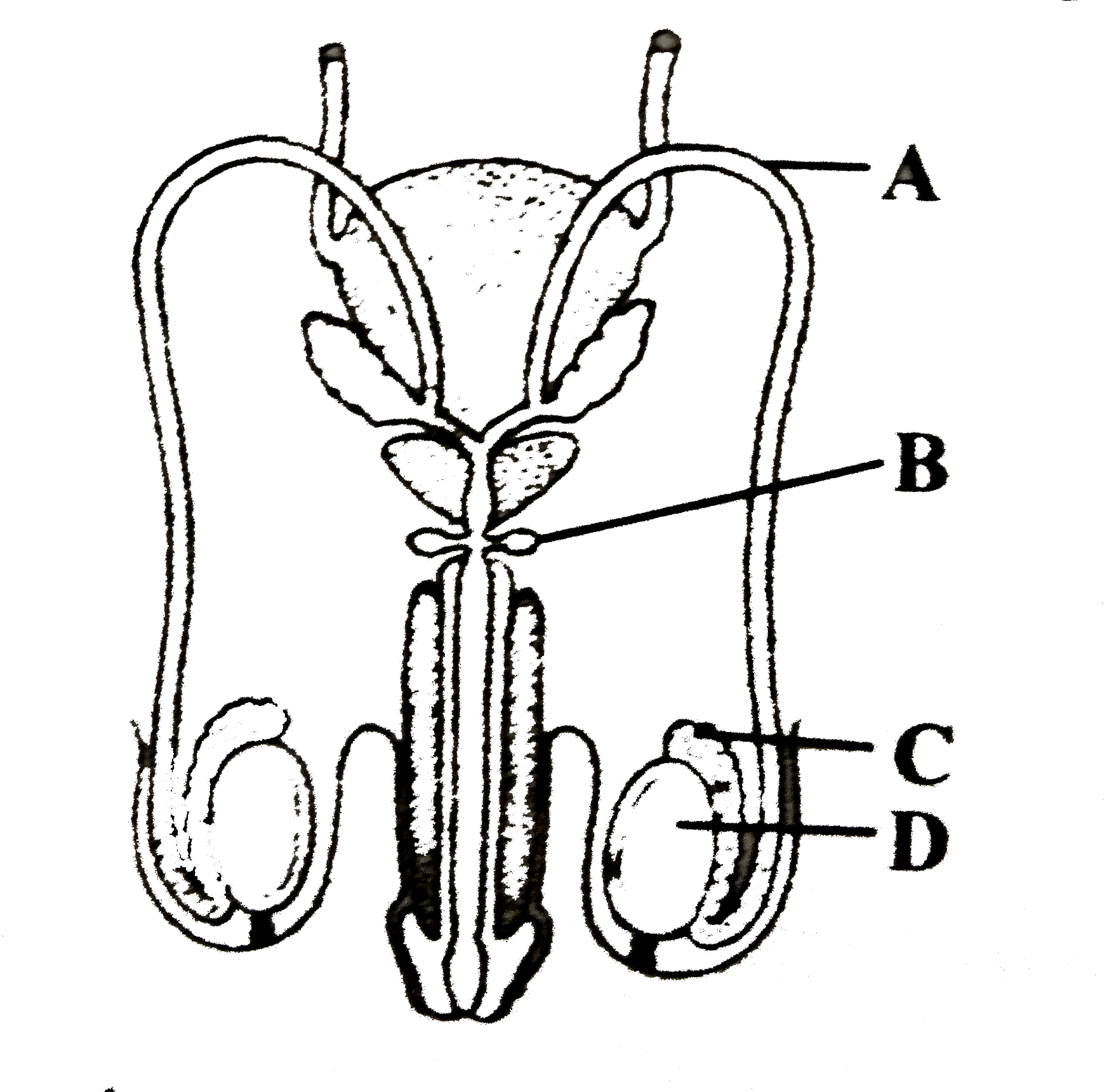The secretion of which gland helps in the lubrication of the penis
Prostate gland
Bulbourethral gland
Seminal vesicle
None of these
The correct Answer is:B
To solve the question regarding which gland's secretion helps in the lubrication of the penis, we can follow these steps:
1. Identify the Glands Involved:
- The question mentions several glands associated with the male reproductive system: the Prostate gland, Bulbo-Urethral gland (also known as Cowper's gland), and Seminal vesicles.
2. Understand the Function of Each Gland:
- Prostate Gland: This gland contributes to the seminal fluid but is primarily known for its role in producing a fluid that nourishes and transports sperm.
- Seminal Vesicles: These glands also contribute to the seminal fluid, providing nutrients and helping to form the bulk of semen.
- Bulbo-Urethral Gland (Cowper's Gland): This gland is specifically known for producing a clear, viscous secretion that acts as a lubricant.
3. Focus on Lubrication:
- The question specifically asks about lubrication. The Bulbo-Urethral gland is known for secreting a mucous substance that lubricates the urethra and the penis, especially during sexual arousal.
4. Conclude with the Correct Answer:
- Based on the functions of the glands, the Bulbo-Urethral gland is the one that helps in the lubrication of the penis. Therefore, the correct answer is the Bulbo-Urethral gland (Cowper's gland).
Final Answer:
The secretion of the Bulbo-Urethral gland (Cowper's gland) helps in the lubrication of the penis.
---
- The question mentions several glands associated with the male reproductive system: the Prostate gland, Bulbo-Urethral gland (also known as Cowper's gland), and Seminal vesicles.
- Prostate Gland: This gland contributes to the seminal fluid but is primarily known for its role in producing a fluid that nourishes and transports sperm.
- Seminal Vesicles: These glands also contribute to the seminal fluid, providing nutrients and helping to form the bulk of semen.
- Bulbo-Urethral Gland (Cowper's Gland): This gland is specifically known for producing a clear, viscous secretion that acts as a lubricant.
- The question specifically asks about lubrication. The Bulbo-Urethral gland is known for secreting a mucous substance that lubricates the urethra and the penis, especially during sexual arousal.
- Based on the functions of the glands, the Bulbo-Urethral gland is the one that helps in the lubrication of the penis. Therefore, the correct answer is the Bulbo-Urethral gland (Cowper's gland).
The secretion of the Bulbo-Urethral gland (Cowper's gland) helps in the lubrication of the penis.
Similar Questions
Knowledge Check
Read the following statements about the given diagram carefully and state which of them are correct ?

(i) A carries urine and sperms.
(ii) B secretes a fluid that helps in the lubrication of penis.
(iii) D produces testosterone but not sperms
(iv) C stroes sperms.A(i) and (ii)B(ii) and (iii)C(ii) and (iv)D(i) and (iv)
Sweat glands help in elimination of
View SolutionRead the following statements about the given diagram carefully and state which of them are correct.

(i) A carries urine and C stores sperm.
(ii) B secretes a fluid that helps in the lubrication of penis.
(iii ) D produces testosterone but not sperms.
(iv) C stores sperms.
View SolutionApocrine secretion of gland means
View SolutionApocrine secretion of gland means
View SolutionThyroxin is secreted by which gland ?
View SolutionSecretion of which gland maintains circadian rhythm of human body?
View SolutionRead the following statements about male reproductive system and identify the correct ones.
I . The scrotum helps in maintaining the temperature ideal for spermatogenesis . II. The male germ cells present in the seminiferous tubules undergo mitotic division and lead to the formation of sperms .
III . The bulbourethral glands secrete substances which help in lubricating the penis and these glands also help in formation of the ejaculatory duct.
IV. The site of spermatogenesis are highly compartments of the testis .
View Solution
